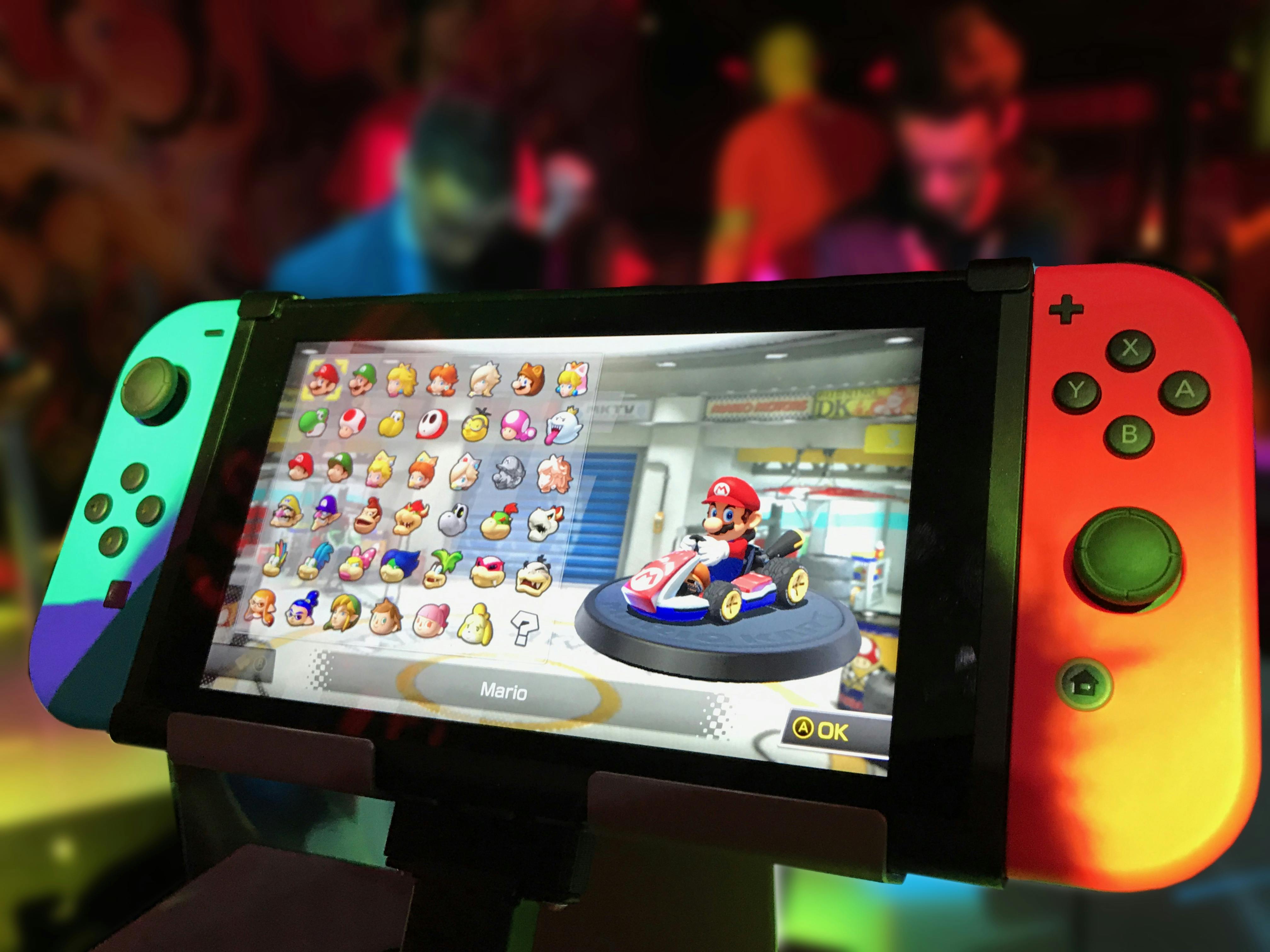Most significant computer game organizations have a broad improvement group and staff that address all degrees of game plan, from conceptualization to the delivered completed item. Every department in the company assumes its own particular part, with every one of the moving parts working together to guarantee a consistent gaming experience for players. Quite possibly the main job is the slot game developer or game engineer, as they are the ones who transform the game architects’ and designers’ thoughts into a product, a genuine, playable computer game.
What Does a Video Game Developer Do?
Contingent upon the size of the studio, computer game designers may add to different phases of computer game turn of events, yet are generally accused of building a functional rendition of the game through PC code. Game coders transform ideas into an unmistakable structure. They program the realm of the future game — mechanics, illustrations, man-made brainpower (AI) functionalities — fabricating a solid base for the game to run on, and guaranteeing all programming perspectives are in accordance with the computer game planner’s details.
Computer game engineers likewise work as game analyzers: A decent designer can test and investigate the usefulness of the game they’re building. They can spot bugs, blunders, or botches, and have the specialized information to fix them.
How to Become a Video Game Developer
The computer game industry is a high-pressing factor and cutoff time-driven climate that requires extended periods of time and difficult work. In the event that you are hoping to get a game designer work, look at the accompanying basic steps for a video game profession:
1. Get an academic degree
Four-year college education in programming or software engineering can help you stand apart to managers. Regardless of whether you have a lot of ability and ability, a confirmation or finishing of a pertinent program may exhibit broad information and a strong establishment of the field, and provide you with a “broom” on the similarly gifted rivalry.
2. Understand the interaction
You must have a full comprehension of the game development process from the moment of idea to the moment of release. Game improvement requires collaboration with various different offices, so be knowledgeable in the obligations of your work, yet the obligations of the multitude of different groups you’ll need to work with.
3. Know your coding languages
Behind each computer game is the code that is running it. Programming languages are fundamental to programming improvement and are liable for how we encounter and collaborate with gaming stages. Elegantly composed code can give a smooth, consistent interactivity experience, which is the goal of each game distributer. Game designers ought to be acquainted with the most mainstream game motors, have careful information on the C++ programming language, and furthermore functioning information on different dialects like C and Java. Maybe than seeking after a programming position for a significant game improvement studio that may require broad experience, you should attempt to discover your balance in the versatile game or low-spending outside the box game world. Knowing an assortment of other programming dialects and game motors can grow your range of abilities and make you an important resource for future managers.
4. Perform routine pursuits of employment
Some computer game organizations are more liberal with work postings than others, so occasionally checking the worksheets from those organizations can be gainful. You can likewise make a site or profile on a place of work to promote your abilities and accessibility. Numerous more modest game companies can’t manage in-house software engineers and will search for specialists to fill the designer job, so make certain to appropriately advertise your gifts.
5. Build a portfolio
The most ideal approach to turn into a game engineer is to build up your own game. In the event that you have the product (and valuable time), make a game or model that shows your capacities and specialized abilities. Gather a portfolio that features your best game programming tests.
Advanced Steps to Become a Game Developer
1. Get an internship at a video game studio
In the event that you have expertise that can be utilized in-game advancement like programming, design, or sound engineering, you could possibly find a new line of work at a game studio regardless of whether you’ve never constructed a real game. Only one out of every odd studio has an “official” game engineer entry-level position program, yet most are available to the possibility of flexible hours, impermanent, reasonable (or free) specialists that could help them finish their game.
Sue Potter got her beginning as a game sound intern. She says, “I was interested about sound designing so I pursued a few classes… and I began to look all starry-eyed at it. I searched for entry-level positions at game organization new businesses, which seemed like the most fascinating road to investigate for me, and was sufficiently lucky to discover one. That was eight years prior. I’ve been cheerfully utilized in various parts in-game sound from that point onward.”
You need a task in games, and game studios need economical specialists. Connect with a game studio close to your home and see whether they have a temporary job – it may very well be an ideal match.
2. Develop your own indie games
I’m continually faced with the question, “How might I get experience making games when game studios will not recruit me except if I have insight?” Well, the appropriate response is straightforward: Make a game, and afterward – presto! – presently you have some insight.
Dan Posluns customized little games for his Apple IIc and his TI-85 adding machine and continued making non-mainstream games until he was seen by a set-up game studio. He advised us, “I really invested some energy dealing with sites prior to being sought after and at last enlisted by a game organization. They had seen my homemade libation Gameboy Advance work on the web, and connected to extend to me an employment opportunity meet.”
There are more, better, free game dev apparatuses accessible now than at any other time. Dan made his first outside the box games on an adding machine! With all that is accessible for you to download and begin making computer games today, you’re authoritatively out of reasons.
3. Start a game blog
In case you’re gunning for a task expounding on games or running a gaming local area, the most ideal approach to begin may be to simply… start.
Catherine Parkers was having a common corporate occupation when he understood that what he truly needed was a task in games. “I began composing a web-based gaming blog. I had trust that I’d get somebody’s attention. I likewise needed to know whether I was any acceptable at it. It just required a month prior to I was seen by Martin Johnson, who requested that I run a gaming site he was co-overseeing.”
4. Post your work on discussion threads
In case you’re a hopeful game designer, you may invest a great deal of energy prowling around conversation barricades and splashing as much information as possible. However, do you know who else peruses those conversation sheets? Proficient game engineers do.
That is the reason it’s an ideal method to get your work seen by game studios, which can help you in-company connections and could even prompt a proposal for employment.
Suraj Parrish is a Game Art Director, yet he didn’t begin that way – he was a jobless craftsman attempting to find his first game work and invested his energy posting his work on conversation threads. Caleb clarified, “Almost immediately, I would post a ton of the work I was doing on forums. At last, I got sufficient that somebody saw and extended to me an employment opportunity.”
Quit prowling, and begin posting. Draw in with different members on the sheets, large numbers of which are proficient game engineers hoping to recruit another person. You may very well wind up with your first occupation in quite a while.
5. Get a job at a gaming studio in a non-gamedev position
It takes an assortment of tasks to work in a fruitful game studio, and a significant number of those positions aren’t straightforwardly engaged with making the game. Regardless of whether you’ve never made a computer game, you could in any case go after positions at game studios in non-improvement jobs like data innovation, apparatuses advancement, or other care staff.
Brian Gish was filling in as a data set designer when he found his first occupation at a game studio in a non-gamedev job. “I had recently been laid off from my first occupation out of school at a data set/PC reinforcement revealing programming organization. A selection representative reached me about a testing devices contract position at Microsoft Gaming Studio dealing with Fable 2. I had for the longest time been itching to work in the games business so it was a little glimpse of heaven! Since I had my foot in the entryway by then, I had the option to find a new line of work at Sony Online Entertainment as a devices developer after my agreement finished.”
6. Take part in game jams
I’ve heard accounts about individuals landing position offers after making something cool in a game jam in any case, by and by, I’ve just met one individual so far who effectively followed this way.
I’m including it here because I do believe it’s conceivable – it bodes well. After you do a game jam you’ll have something for your portfolio, you’ll have built up some expertise working with a group under tension, and you will have extended your expert organization by meeting new individuals – large numbers of whom may be proficient game engineers that could assist you with finding a new line of work sometime in the not so distant future. I believe it merits looking at if game jams are your jam.
7. Build in-game applications
On the off chance that working for a game company isn’t your cup of tea, there’s another method to make money in games all alone: form gaming applications that upgrade well-known multiplayer games.
Amit Lesnikov is a designer who without any help made the application Snakes On Fire, a success among snake appreciators. Up until this point, the game has almost a large portion of 1,000,000 downloads and has brought in Amit enough cash to leave his place of employment and do game application advancement full time.
Another model example is Brad Tsur, who worked in-game applications for games like Apex Legends and Fortnite. He began by building simply a solitary application, HaloTracker. It turned out to be famous to the point that he transformed it into everyday work and employed extra engineers to construct much more applications.
Making gaming applications requires some programming capacity, yet it’s feasible to make really stunning applications for games like League of Legends or Hearthstone, utilizing just JavaScript and HTML. In the event that players find your application valuable, you can acquire somewhere in the range of hundreds to thousands of dollars every month from in-application promoting and memberships.
Try not to give up – follow your fantasies
Is “determination” a methodology? Like most anything beneficial throughout everyday life, building up your abilities and finding a new line of work in the computer game industry won’t be simple. You may feel like you’re wasting your time – you may get debilitate. We’ve all been there.
Be that as it may, no one has felt it more than Tony Ravo. Today, Tony is a Lead Animator at a significant game studio. Be that as it may, his first game occupation didn’t come effectively – it came after numerous months and numerous dismissals. Tony’s recommendation is this: “The individuals who land the positions in the business are those that continue to deal with their reel and continue to apply even after those first adjust of dismissal. I actually have my Disney dismissal letter, yet I learned I expected to improve my life drawing abilities so I dealt with that. Every dismissal I got roused me to work more enthusiastically until I was, in the long run, ready to get my foot in the entryway.”
It doesn’t feel incredible to have your request for employment turned down. However, simply recollect that you need to come up short before you can succeed – every dismissal presents to you another bit nearer to getting your first game position.







